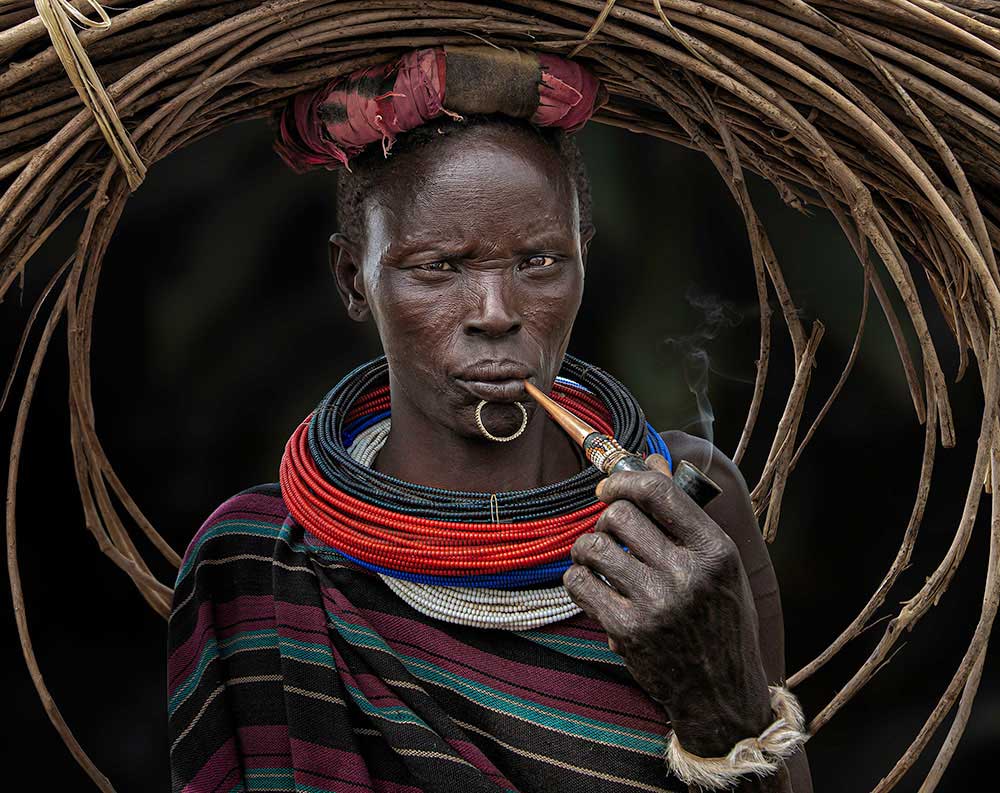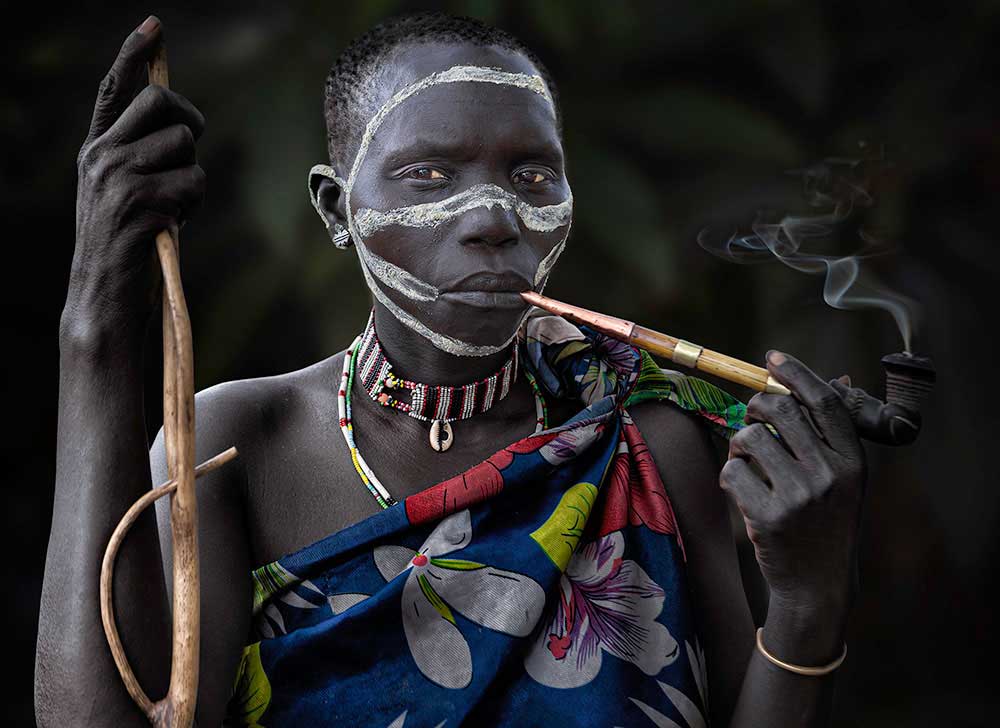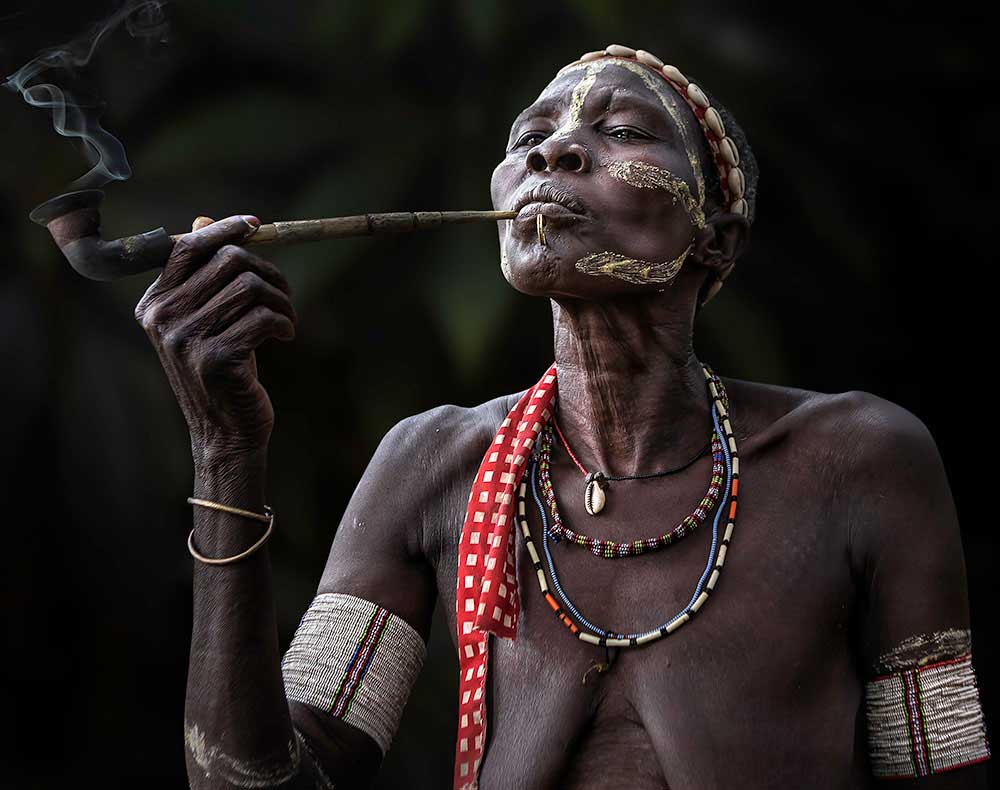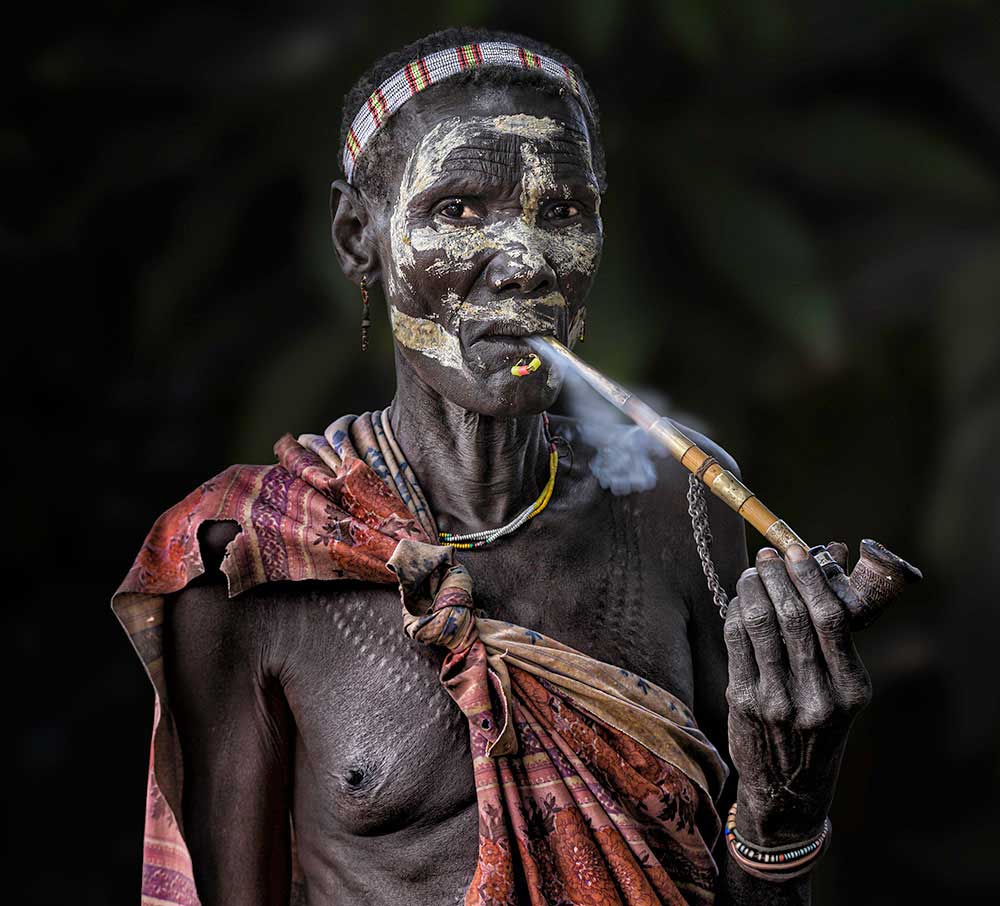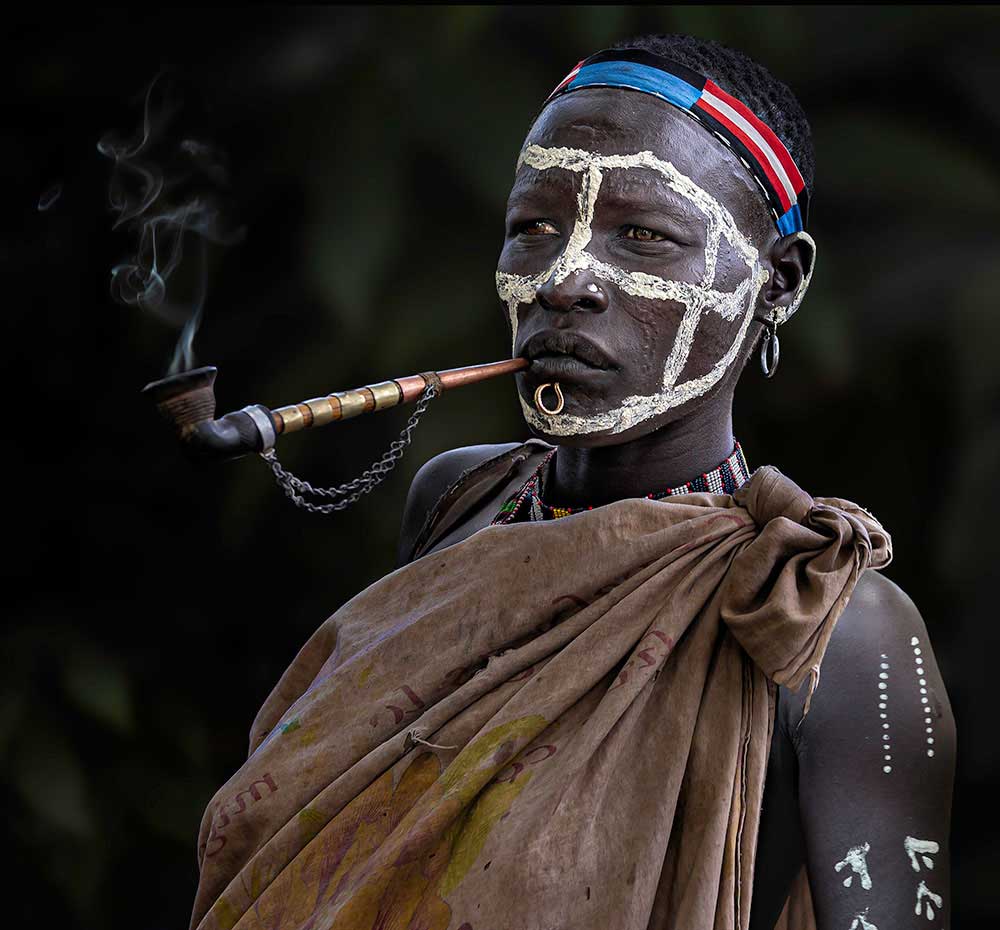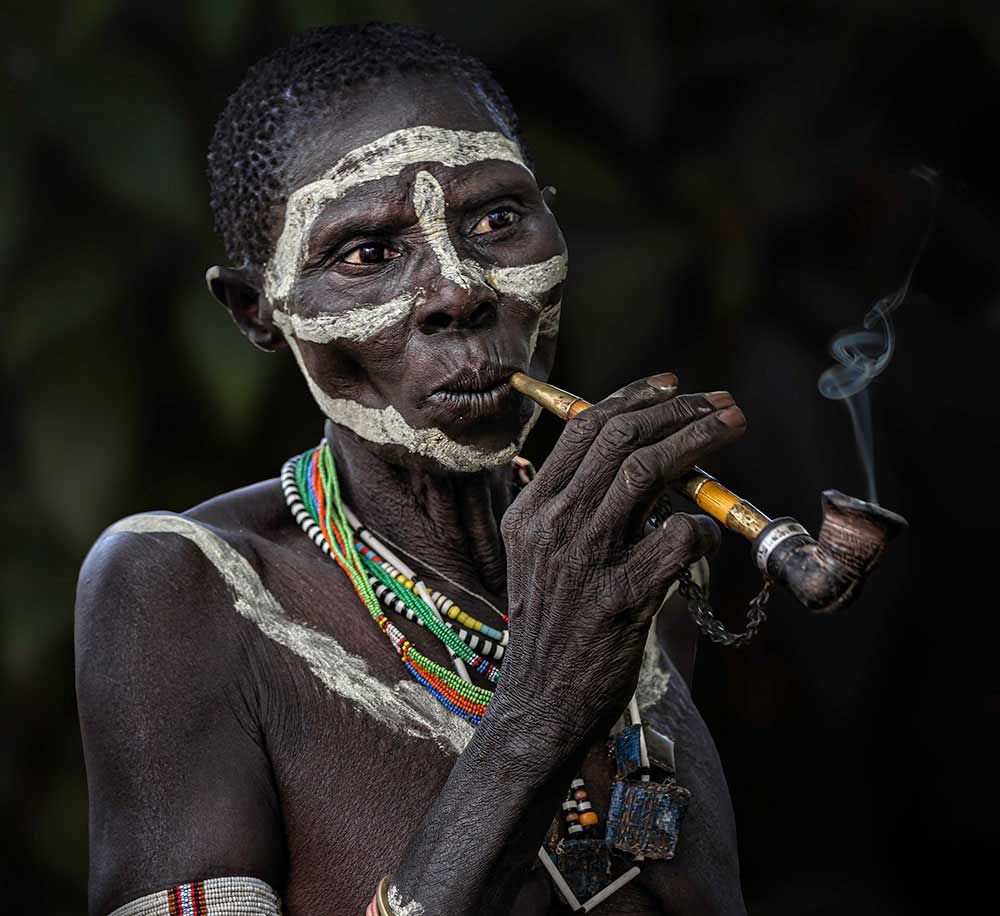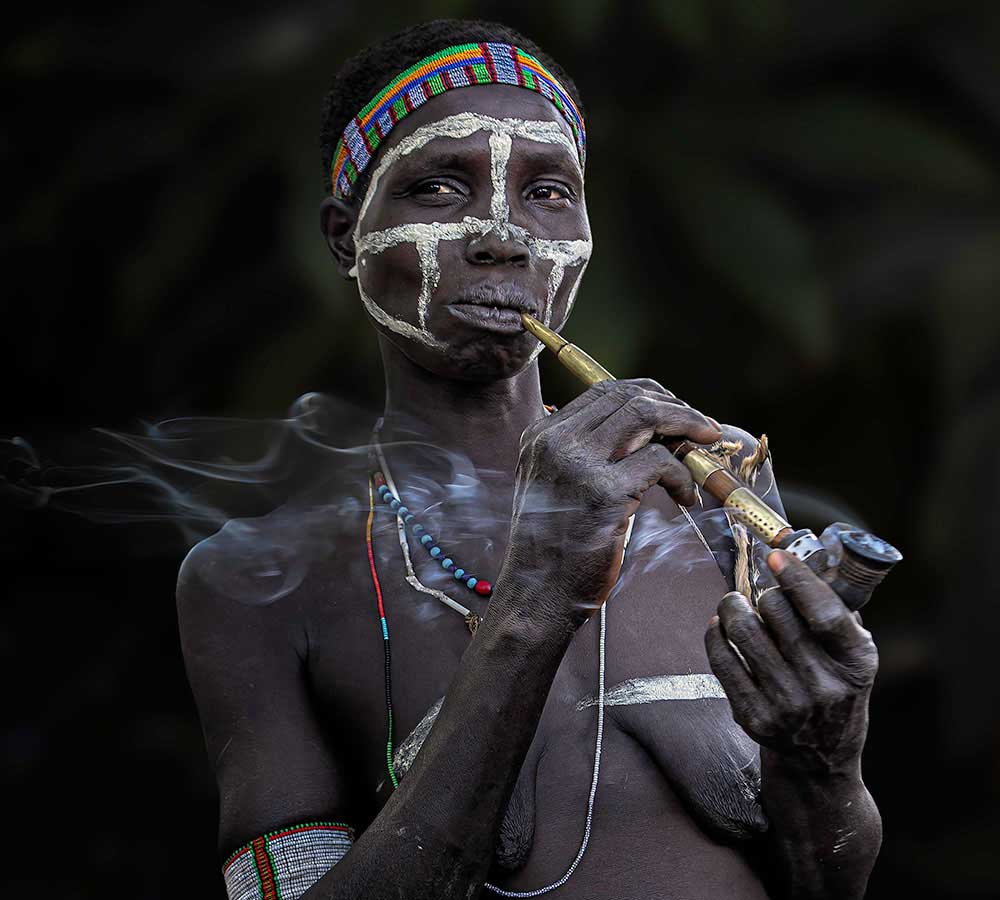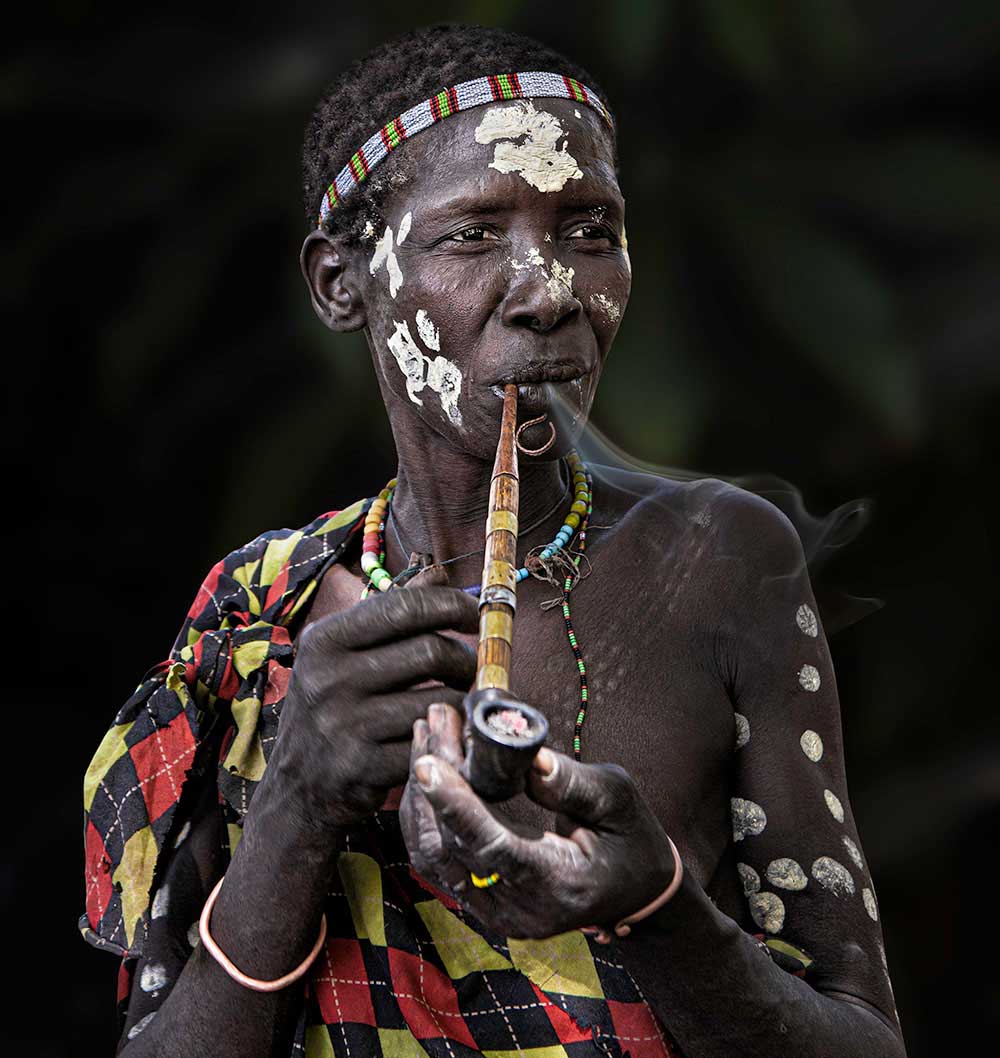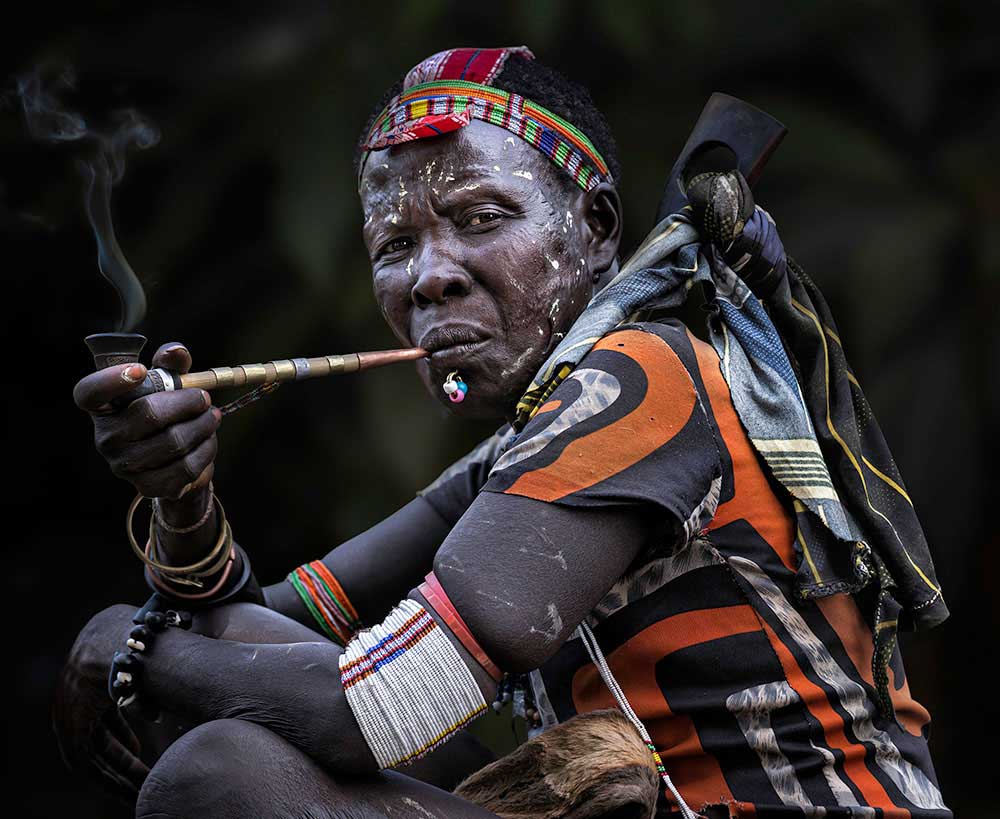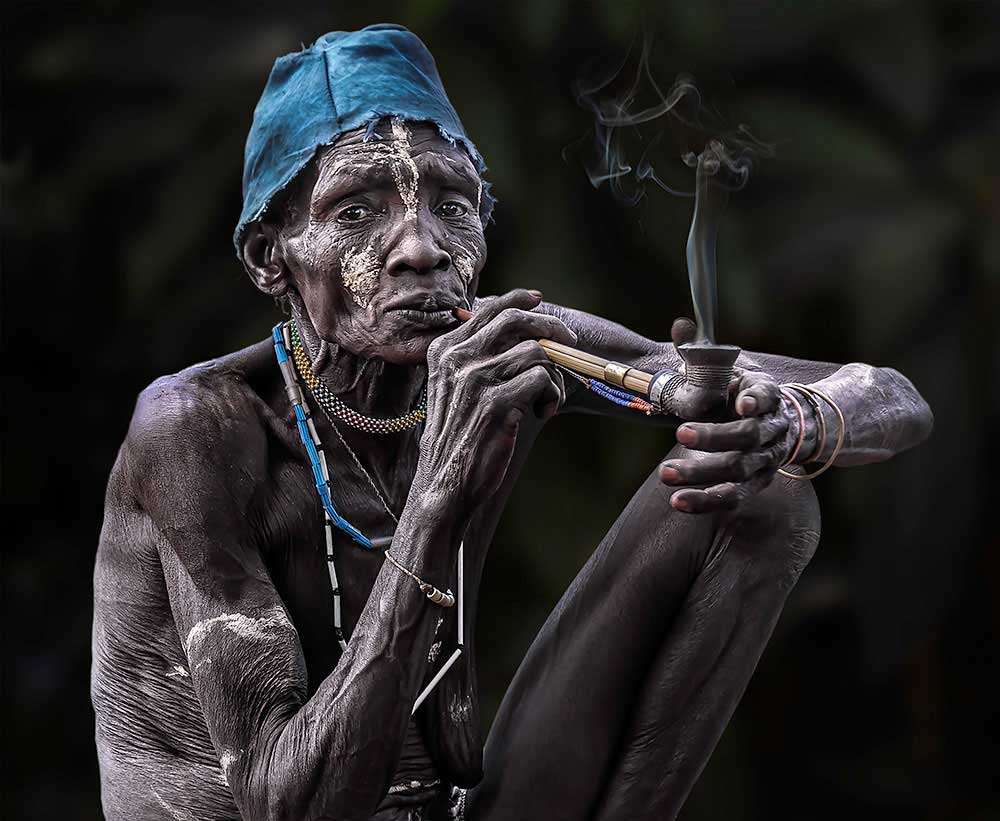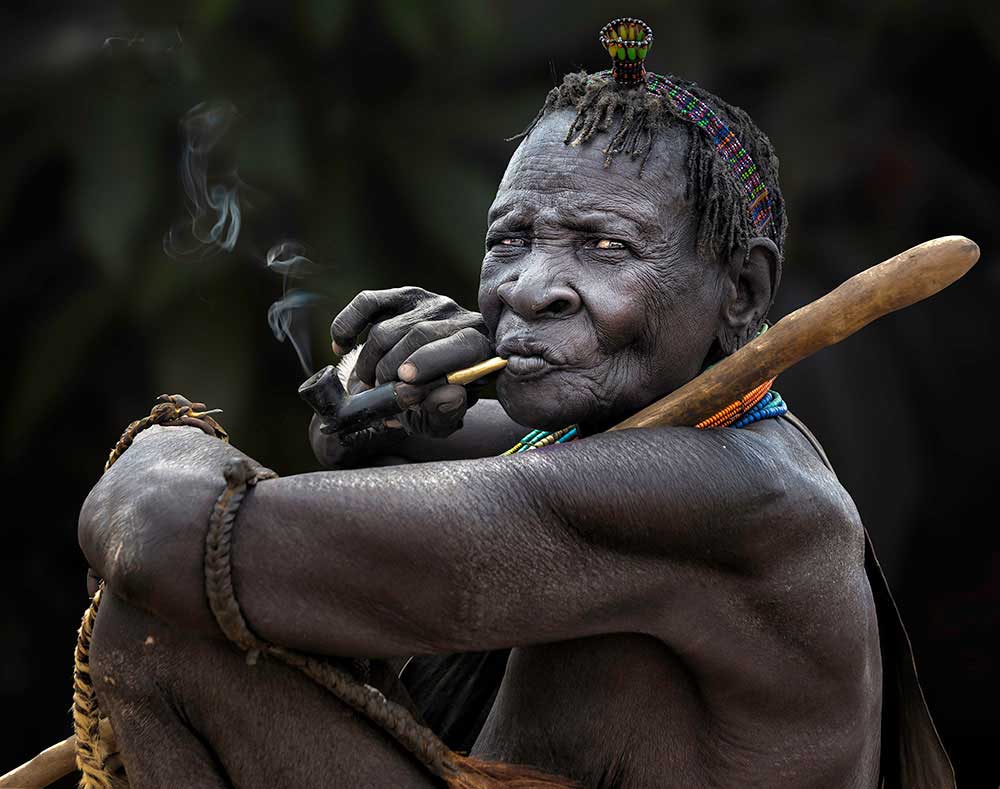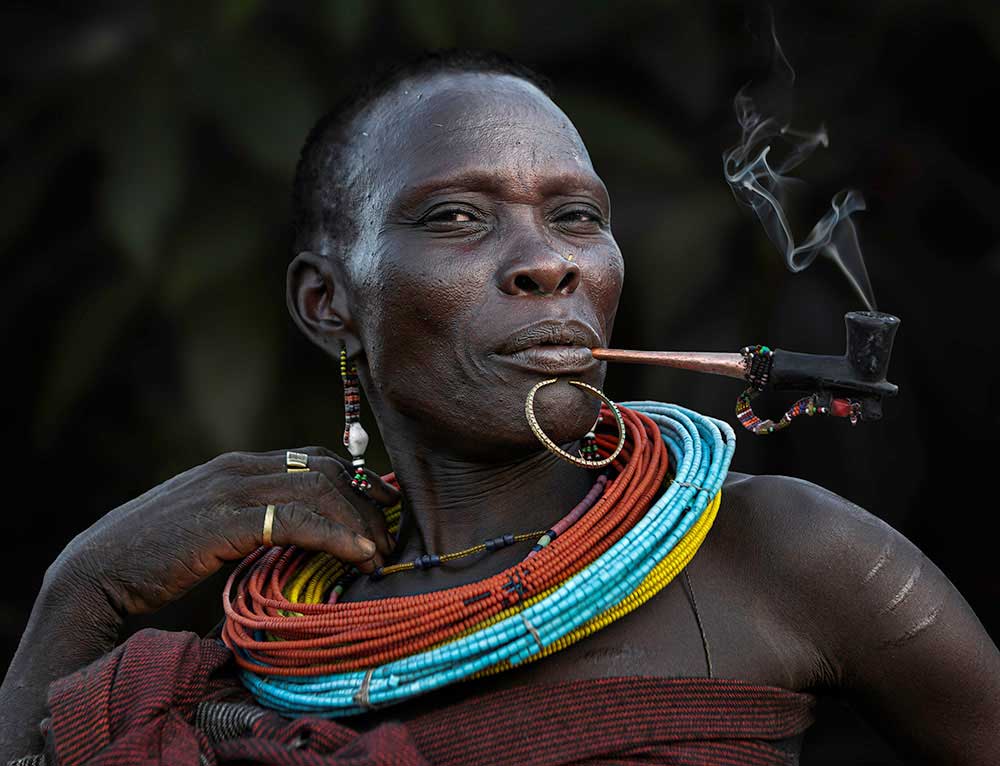I traveled to South Sudan last year to learn about some of the least photographed and least known African cultures. South Sudan is the youngest country in the world.
When we arrived at the villages, first the Toposa and then the Didingas, I was fascinated to see that women smoked, both in our reception party and then in an assembly they held. Smoking in this tribes is customary only to women. They allowed me to photograph them and accepted my presence without hesitation. It was very exciting to share their daily life.
These women smoke tobacco, an ancient custom that marks their ancestry, identity and tribal pride. Their attitude was strong. Fierce. They were active participants of every ceremony and the Leaders of the communities. Their long pipes are handcrafted carved in wood and decorated with metal sheets and beads.
They held their heads high, showing off their pipes, and stating their strength with an amazing attitude. I was captivated. I started following them and photographing them. I could see them in their daily chores, they are in charge of the household, but also they carry out the tasks. They cook and feed the children, fetch water from the well, they prepare food, build the huts and make the repairs. I had the opportunity to see them kill a goat to eat and share it with other families.
Women in this community where several adornments, not only for parties or ceremonies: lip piercing, multi-colored necklaces and -depending on the tribe- they also scarify their bodies as a feature of beauty and belonging.
Their traditions are as old as time and these women are the oral testaments, teaching the tribe their stories. The Toposa and the Didinga preserved their cultures, isolated, as a consequence of the British occupation of the past 75 years in Sudan territories. By Royal decree the equatorial area was to remain “district closed to western influence”, and so it was.
These women survived more than 40 years of ongoing wars. Wars among the north and south of the country, and the wars in the territory and the independence. They are living witnesses of the collateral damages of the war. Their culture is changing, they are becoming rather sedentary and influenced by the West, but they are and will be the ones to teach their essence to the community descendants.



